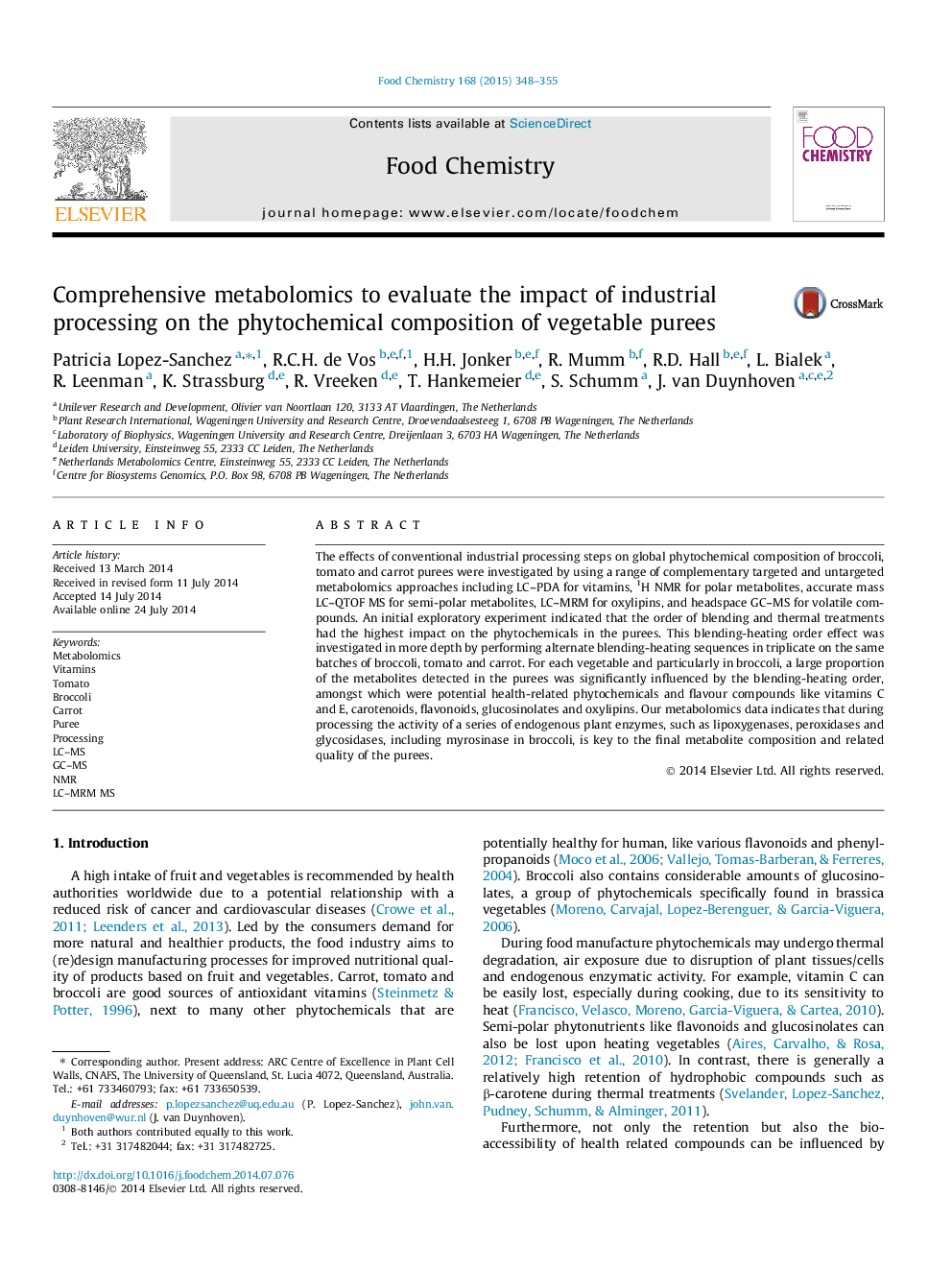| Article ID | Journal | Published Year | Pages | File Type |
|---|---|---|---|---|
| 7595179 | Food Chemistry | 2015 | 8 Pages |
Abstract
The effects of conventional industrial processing steps on global phytochemical composition of broccoli, tomato and carrot purees were investigated by using a range of complementary targeted and untargeted metabolomics approaches including LC-PDA for vitamins, 1H NMR for polar metabolites, accurate mass LC-QTOF MS for semi-polar metabolites, LC-MRM for oxylipins, and headspace GC-MS for volatile compounds. An initial exploratory experiment indicated that the order of blending and thermal treatments had the highest impact on the phytochemicals in the purees. This blending-heating order effect was investigated in more depth by performing alternate blending-heating sequences in triplicate on the same batches of broccoli, tomato and carrot. For each vegetable and particularly in broccoli, a large proportion of the metabolites detected in the purees was significantly influenced by the blending-heating order, amongst which were potential health-related phytochemicals and flavour compounds like vitamins C and E, carotenoids, flavonoids, glucosinolates and oxylipins. Our metabolomics data indicates that during processing the activity of a series of endogenous plant enzymes, such as lipoxygenases, peroxidases and glycosidases, including myrosinase in broccoli, is key to the final metabolite composition and related quality of the purees.
Related Topics
Physical Sciences and Engineering
Chemistry
Analytical Chemistry
Authors
Patricia Lopez-Sanchez, R.C.H. de Vos, H.H. Jonker, R. Mumm, R.D. Hall, L. Bialek, R. Leenman, K. Strassburg, R. Vreeken, T. Hankemeier, S. Schumm, J. van Duynhoven,
